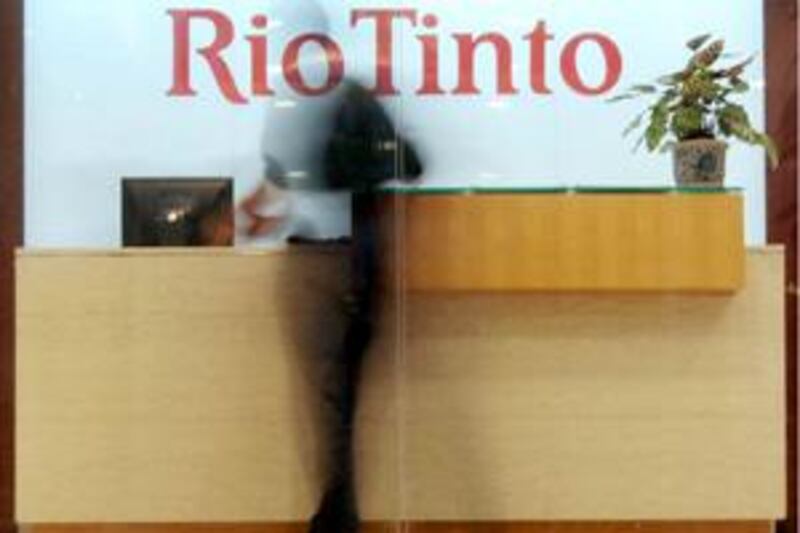Chinese authorities yesterday charged senior executives from the Australian mining giant Rio Tinto with commercial espionage and bribery. This was a less serious accusation than stealing state secrets and possibly a sign that China is keen to resolve a diplomatic row with Australia as smoothly as possible.
Initially, the Chinese government claimed that Stern Hu, an Australian national who heads Rio's iron ore business, and three other Rio Tinto employees were guilty of espionage and stealing state secrets, charges that could carry the death penalty. The four Rio employees have, however, been charged with bribery and "obtaining commercial secrets about China's steel and iron industries", the official Xinhua news agency reported.
The charge, under Article 219 of China's Criminal Code, carries a maximum seven-year jail sentence, although those convicted may also only face a fine. Rio rejects any charges of wrongdoing by the four employees, who have been detained since July 5. Sam Walsh, the Rio Tinto iron ore chief executive, told Australian media: "The charges have been downgraded, and I think that reflects what we've been saying all along - that we don't, in fact, believe there's any evidence of wrongdoing."
Kevin Rudd, the Australian prime minister, has said he was watching the situation closely. Some analysts have speculated that by bringing in the less serious charge of stealing state secrets, the Chinese government is trying to cool tempers and resolve the situation. Relations have been under strain between Australia and China, its second-biggest trading partner, since the detentions early last month.
China's purchase of huge quantities of iron ore from Australia has been a big support for the Australian economy, and Canberra is keen to keep relations between the two countries on track. While the Rio Tinto team is charged with paying bribes for information on China's negotiating stance on the price of iron ore, there is speculation that the row was kicked off by Rio's rejection in June of a bid by the Chinese state-owned company Chinalco to buy a US$19.5 billion (Dh71.62bn) stake in Rio Tinto.
The deal was abandoned by Rio in favour of a link-up with its fellow Anglo-Australian miner BHP Billiton, four months after it had agreed to what would have been China's biggest overseas investment. China is the world's largest buyer of iron ore and carries a lot of muscle in the commodities market. It has taken over the lead from Japan in annual talks to set prices for iron ore. The secrets row has cast a shadow over this year's iron ore talks and also affected shares in Rio Tinto, which is the world's second-largest iron ore exporter.
However, China is also unlikely to want to force an issue that could do serious damage to its image as a place to do business. If the Rio Tinto employees are seen to be treated harshly, other foreign companies are likely to be a lot more cautious about investing in China, and the country needs inward investment to keep its economy growing at current rates. Fu Ziying, the assistant minister of commerce, struck a conciliatory tone at a news conference in Beijing, saying: "We believe Chinese judicial organs will make a fair ruling on the case based on the facts and in accordance with law. There is no question about that."
Mr Fu went on to say that China was determined to promote fair competition and insisted the case would not harm trade relations between the two countries. Temperatures were raised at the weekend by remarks carried on a website linked to the National Administration for the Protection of State Secrets, which accused Rio of six years of "industrial espionage" that had, it alleged, cost China 700bn yuan (Dh376bn) in overcharging for iron ore.
However, since then authorities have said those remarks were the opinion of one analyst and did not represent China's views, and tempers have eased somewhat. The Australian department of foreign affairs and trade said the consulate-general in Shanghai had been told by the Chinese ministry of public security that Mr Hu and his co-workers had been formally arrested. "Hu is now subject to Chinese law and Chinese legal and judicial processes. We may be in for the long haul," it said.
business@thenational.ae





